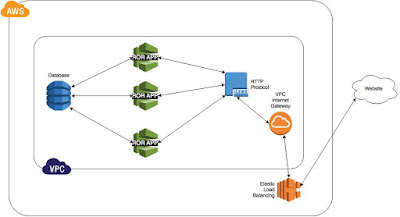In most cases, application performance depends on the size of the database and the application structure. Let’s check out the factors that affect the functions and performance of the applications. Follow the guides for better execution.
Better Session Container:
Rails framework includes several in-built session containers. ActiveRecordStore and PStore are two widely used containers. ActiveRecordStore records the session information in the database while PStore records the same in a separate file. Now both session containers remarkably affect the performance of action-cached pages that impact the application performance. Interestingly it also comes with two better alternatives SQL SessionStore and MemCacheStore. These alternatives power the performance of action-cached pages resulting in faster execution of the code that further enhances the application performance.
Reading Cached data:

RoR developers are careful in using class-level caching, or rather they try not to use it to prevent a repetition of same data during the single process requests. The data can simply be read in the cache, which is much faster and the calculations can be easily prevented.
You can simply read the data in the cache, which is much faster and prevents repeated calculations.
Request independent computations at startup:
RoR framework allows you to cache this data in some variable and class of application in case data does not change. Rails developers can also disable logging in Ruby on Rails on a per action basis using silence method.
Optimize queries:
There is a well-defined connection between Model classes. However, the inbuilt generated accessors are not optimized for performance. The accessor method generates N number of additional queries to the database which further affects the performance of the application. This performance issue can be better resolved by the addition of an: include =>” author to your query parameters, which ends up creating a single SQL statement and instant construction of author objects.
Avoiding the use of slow helpers:
All helpers in Rails put forward the routing module to work with URL. The entire process is a pretty time-consuming since it undergoes several routes in the route file. Instead, it allows the developers to code the piece in HTML, directly to avoid the slow helper.
Optimizing a Database:

Dealing with a database is a time-consuming affair. Rampant querying might severely affect the performance of the RoR application. Reducing SQL queries might be an effective solution to improve application performance. You can also try optimizing the database, which can be done by following actions:
Better Session Container:
Rails framework includes several in-built session containers. ActiveRecordStore and PStore are two widely used containers. ActiveRecordStore records the session information in the database while PStore records the same in a separate file. Now both session containers remarkably affect the performance of action-cached pages that impact the application performance. Interestingly it also comes with two better alternatives SQL SessionStore and MemCacheStore. These alternatives power the performance of action-cached pages resulting in faster execution of the code that further enhances the application performance.
Reading Cached data:

RoR developers are careful in using class-level caching, or rather they try not to use it to prevent a repetition of same data during the single process requests. The data can simply be read in the cache, which is much faster and the calculations can be easily prevented.
You can simply read the data in the cache, which is much faster and prevents repeated calculations.
Request independent computations at startup:
RoR framework allows you to cache this data in some variable and class of application in case data does not change. Rails developers can also disable logging in Ruby on Rails on a per action basis using silence method.
Optimize queries:
There is a well-defined connection between Model classes. However, the inbuilt generated accessors are not optimized for performance. The accessor method generates N number of additional queries to the database which further affects the performance of the application. This performance issue can be better resolved by the addition of an: include =>” author to your query parameters, which ends up creating a single SQL statement and instant construction of author objects.
Avoiding the use of slow helpers:
All helpers in Rails put forward the routing module to work with URL. The entire process is a pretty time-consuming since it undergoes several routes in the route file. Instead, it allows the developers to code the piece in HTML, directly to avoid the slow helper.
Optimizing a Database:

Dealing with a database is a time-consuming affair. Rampant querying might severely affect the performance of the RoR application. Reducing SQL queries might be an effective solution to improve application performance. You can also try optimizing the database, which can be done by following actions:
- Clear unused indexes
- Add correct indexes for foreign and private keys and fields utilized in sorting statements
- Revise and optimize SQL queries
- Use stored procedures
- Avoid use of transactions when not necessary
- Use eager loading of associations
These are only a few structural ways and solutions that you adopt to improve the performance of the application. Assess and evaluate the application performance after taking steps to improve it.
No comments:
Post a Comment